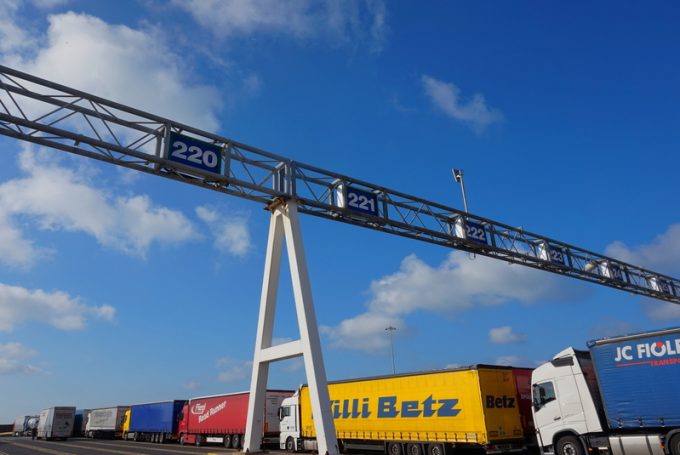Eastern Europe trade takes off as new air services generate excitement
Cathay Cargo’s new bellyhold service from Munich to Hong Kong launches today, and has already ...
WTC: RIDE THE WAVEFDX: TOP EXEC OUTPEP: TOP PERFORMER KO: STEADY YIELD AND KEY APPOINTMENTAAPL: SUPPLIER IPOCHRW: SLIGHTLY DOWNBEAT BUT UPSIDE REMAINSDHL: TOP PRIORITIESDHL: SPECULATIVE OCEAN TRADEDHL: CFO REMARKSPLD: BEATING ESTIMATESPLD: TRADING UPDATEBA: TRUMP TRADE
WTC: RIDE THE WAVEFDX: TOP EXEC OUTPEP: TOP PERFORMER KO: STEADY YIELD AND KEY APPOINTMENTAAPL: SUPPLIER IPOCHRW: SLIGHTLY DOWNBEAT BUT UPSIDE REMAINSDHL: TOP PRIORITIESDHL: SPECULATIVE OCEAN TRADEDHL: CFO REMARKSPLD: BEATING ESTIMATESPLD: TRADING UPDATEBA: TRUMP TRADE

The UK government appears to have conceded that the queues of lorries looking to cross the Channel are not Brexit “teething problems”, but are in fact here to stay. As a result, it has expanded emergency powers to handle the queues into a permanent protocol. Despite the misery of residents in the area, Operation Brock, a system designed to cope with up to 13,000 lorries, is to be extended past its original end date of October. Under the contingency plan, part of the eastbound M20 – the main artery to Dover and the Channel Tunnel – is closed to normal traffic and available exclusively for lorries.
However, opposition politicians said UK businesses were being harmed by “the Conservatives’ botched deal with the EU”.


Comment on this article
Victor Jones
August 11, 2021 at 2:58 pmNot so much to do with “brexit” actually
These problems have been going on for decades – french dock strikes, adverse weather, fires and power outages in the tunnel – all required stack arrangements of some sort
You remoaners in the media need to get over your petulant grief and look beyond brexit to the real picture – you cannot deny history
Alex Lennane
August 11, 2021 at 3:07 pmOperation Brock, according to the UK government, was “created to deal with disruption caused by [the] EU exit [transition period], and in response to the Covid-19 pandemic”. One-off problems have indeed arisen before, but it is only now that the government has decided a long-term solution is needed for what presumably is a long-term problem. Isn’t that the real picture?